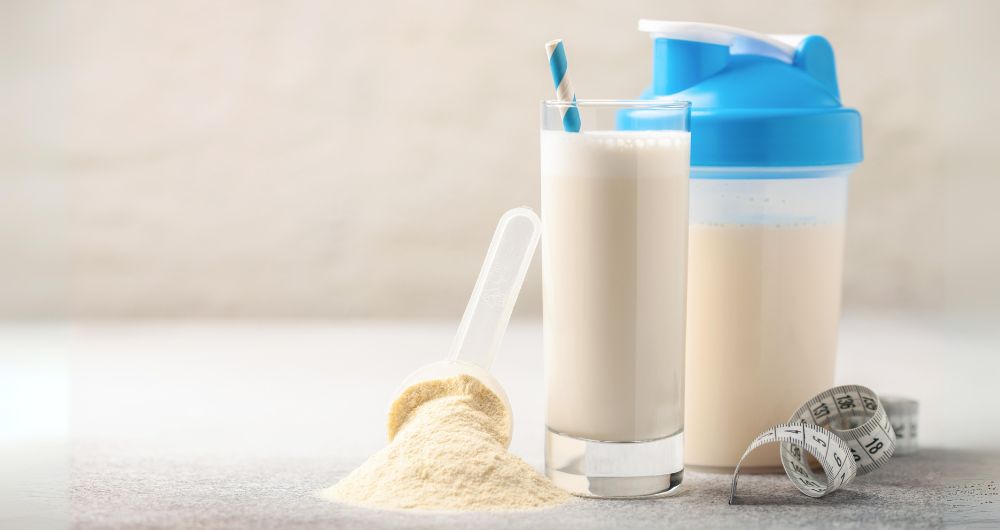
Unlocking Your Protein Power: How Much Do You Need?
How Much Protein Do I Need?
Are you starting a vegan lifestyle or looking to boost your health? If so, you might wonder, "How much protein do I need?" Knowing your daily protein intake is crucial for maintaining muscle, supporting metabolism, and achieving wellness. Let's explore how to meet your needs with vegan protein powder and plant-based sources.
Why is Protein Important?
Protein is a macronutrient that plays a key role in building and repairing tissues, producing enzymes and hormones, and supporting immune function. For anyone—especially those on a vegan diet—adequate protein intake is essential for maintaining muscle mass and strength, particularly when engaging in regular physical activity.
Key Benefits of Protein:
• Muscle Growth and Repair: Protein is fundamental in the repair of muscle tissues post-workout. This process helps in the recovery and growth of muscles, ensuring you're able to continue performing physical activities effectively.
• Metabolic Support: Protein is involved in various metabolic pathways and energy production, facilitating the body's ability to convert food into usable energy. This not only supports muscle activity but also sustains overall bodily functions.
• Improved Satiety: High-protein foods keep you feeling full and satisfied longer, which is beneficial for weight management. This helps to curb unnecessary snacking and maintain a healthier diet.
• Improved Satiety: High-protein foods keep you feeling full and satisfied longer, which is beneficial for weight management. This helps to curb unnecessary snacking and maintain a healthier diet.
How Much Protein Do You Need?
The Recommended Dietary Allowance (RDA) for protein is 0.8 grams per kilogram of body weight for the average adult. However, individual needs can vary depending on factors such as age, sex, physical activity level, and overall health goals. For instance, athletes or individuals with higher activity levels may require more protein to support muscle recovery and growth.
Calculating Your Daily Protein Intake:
1. Determine Your Weight in Kilograms: Convert your weight from pounds to kilograms by dividing by 2.2.
2. Multiply by the RDA: Multiply your weight in kilograms by 0.8 to find your minimum protein requirement.
3. Adjust for Activity Level: If you are highly active, consider increasing your intake to 1.2-2.0 grams per kilogram of body weight. This adjustment ensures that your protein intake aligns with your higher energy and recovery needs.
Meeting Protein Needs on a Vegan Diet
Contrary to popular belief, it's possible to meet your protein needs on a vegan diet. Incorporating a variety of plant-based protein sources ensures you get all essential amino acids, which are the building blocks of protein.
Top Vegan Protein Sources:
• Legumes: Lentils, chickpeas, and black beans are excellent sources of protein. They are versatile and can be added to soups, salads, and stews.
• Nuts and Seeds: Chia seeds, hemp seeds, and almonds not only provide protein but also essential fatty acids and other nutrients. They make great additions to smoothies, oatmeal, or as snacks.
• Whole Grains: Quinoa, farro, and oats are not just carbohydrates but also contain a significant amount of protein. They can be the base of a meal or a hearty side dish.
• Vegetables: Spinach, broccoli, and Brussels sprouts might not seem like typical protein sources, but they contribute to your overall intake when eaten in sufficient quantities.
Vegan Protein Powder Options
One convenient way to boost your protein intake is through clean protein powder. Vegan options like pea, rice, or hemp protein offer a concentrated source that can be easily added to smoothies, oatmeal, or baked goods.
Benefits of Vegan Protein Powder:
• High Protein Content: Provides a concentrated dose of protein, making it easier to meet your daily requirements.
• Ease of Use: Can be quickly mixed into various recipes, making it a versatile addition to your diet.
• Digestibility: Often easier to digest for those with lactose intolerance or other sensitivities, ensuring that you can enjoy your protein intake without discomfort.
Antioxidant Protein Powder
Antioxidant protein powders offer both essential protein and antioxidants, helping to combat oxidative stress and support overall health.
Why Choose Antioxidant Protein Powder?
• Dual Benefits: Combines protein with antioxidants for enhanced health benefits. This means you get the muscle-supporting power of protein along with the cell-protecting properties of antioxidants.
• Supports Recovery: Helps reduce inflammation and supports faster recovery post-exercise. This is particularly beneficial for those who engage in intense workouts and need to recover quickly.
Incorporating Protein into Your Daily Routine
Here are practical tips to meet your daily protein goals:
• Start with Breakfast: Add vegan protein powder to your smoothie or oatmeal for a strong start.
• Snack Smart: Choose protein-rich snacks like nuts or a protein bar to keep your energy stable.
• Balanced Meals: Include plant-based protein like legumes or tofu in each meal.
• Stay Consistent: Distribute your protein evenly throughout the day for sustained energy and muscle repair.
